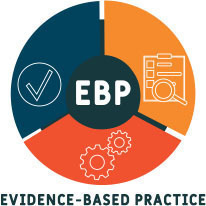This is one of my favorite issues of CMSA Today, our annual issue dedicated to the importance of evidence-based practices (EBP) in case management. In the ever-evolving field of healthcare, professional case management plays a crucial role in coordinating patient care and ensuring optimal outcomes. However, to provide the highest quality of care, it is imperative that medical case managers rely on current evidence-based practice. Evidence-based practice integrates clinical expertise, patient values and preferences, and the best available scientific evidence. Within this issue, you will find the cutting edge practices that are helping to move the practice of professional case management forward. So, why is EBP so important? What’s all the fuss about?
One of the fundamental principles of evidence-based practice is the consideration of patient values and preferences. In case management, understanding the unique needs and goals of each patient is paramount. By incorporating EBP, case managers can make informed decisions that align with the patient’s values, ensuring a patient-centered approach to care. This not only enhances the patient’s experience but also increases their engagement in their own healthcare, leading to better adherence to treatment plans.
Professional case managers are entrusted with helping to make critical decisions regarding a patient’s care plan, which often involves complex medical conditions and treatment options. Evidence-based practice equips case managers with the tools to critically appraise and interpret research findings, allowing them to make informed and evidence-based decisions. This reduces the likelihood of errors, improves the quality of care and ultimately leads to better patient outcomes.
The cornerstone of evidence-based practice is the incorporation of the best available scientific evidence into clinical decision-making. By relying on well-established research and clinical guidelines, case managers can be confident that their interventions are based on proven methods. This not only leads to improved patient outcomes but also reduces unwarranted variations in care, thus promoting consistency and quality across healthcare systems.
In today’s healthcare landscape, resource allocation is a critical concern. Evidence-based practice in case management can help optimize resource utilization by focusing on interventions and treatments that have demonstrated effectiveness. This approach can lead to cost savings for healthcare organizations while maintaining or even improving the quality of care provided to patients.
The field of healthcare is constantly evolving, with new research and technologies emerging regularly. Evidence-based practice encourages case managers to stay current with the latest developments by regularly reviewing and updating their knowledge and skills. This adaptability ensures that patients receive the most up-to-date and effective care available.
Professional case management often involves collaboration among various healthcare professionals, including physicians, nurses, therapists and social workers. Evidence-based practice promotes effective communication and collaboration by providing a common framework for decision-making. This interdisciplinary approach fosters a cohesive and coordinated approach to patient care, leading to better outcomes.
Evidence-based practice is the backbone of professional case management. It empowers case managers to make informed decisions, tailor care plans to individual patient needs and improve the quality and efficiency of healthcare delivery. By prioritizing EBP, healthcare organizations can enhance patient outcomes, optimize resource utilization and maintain compliance with regulatory standards. Ultimately, the adoption of evidence-based practice in medical case management is essential for delivering the best possible care to patients and driving positive changes in the healthcare industry. As you read through this issue, I ask you to take a look at what you are doing within your practice setting and consider sharing your best practices with the wider case management community. Together, we move the profession into the light!





